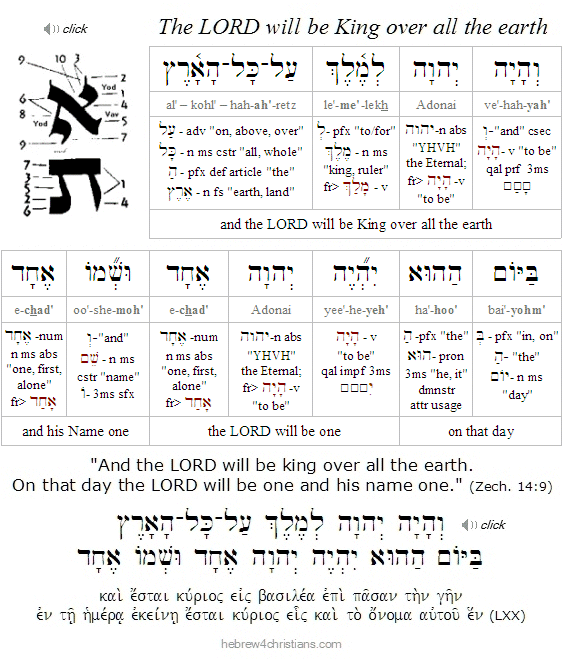|
Our actions invariably reveal what we are believing about the nature of reality. We will live what we believe... Put the other way around, what we believe will determine what we do. Nearly all of our conscious intentions are future-directed. We assume that the future will resemble the past, and therefore we make our plans and set our agendas. And yet to what end? What is the purpose of our lives? Where are your actions taking you?
Questions like these concern your personal philosophy of life. Every person makes choices based on their vision and expectation of a future good. Every person therefore lives by a creed that speaks toward the future.... Sadly, many people live for the immediate moments of life: cheap thrills, fast food, and mindless entertainment. "Let's eat and drink, for tomorrow we die" (1 Cor. 15:23). Others may enjoy fine art, reading, and learning - hoping thereby to improve themselves. Most people live in order to love others, friends and family... But apart from God, none of these otherwise good things will ultimately satisfy our hearts. "Disordered love" comes from setting the heart's affections on the transitory, the ephemeral, and the unabiding; but God has set eternity within our hearts (Eccl 3:11). The Lord has "wired" us to experience discontent when our heart's deepest need goes unmet.
On a larger scale, philosophers have asked whether life itself - all of it - has any meaning or purpose. "Why is there something rather than nothing - and for what reason?" Is the universe essentially a random set of events, or is there some overarching purpose and design to everything? Is history linear or cyclical? Does it have a goal or destination, or is this entirely unknowable to us? Are human beings evolving - and if so, to what? Is there a spiritual dimension to reality, or is everything causally determined by matter and motion? Do we have "free will" or are we entirely conditioned to do what we do? Various answers have proposed to deal with these questions over time, including mythological polytheism (e.g., Zoroastrianism, Egyptian/Greek mythology, animism, paganism), cyclical impersonalism (e.g., Hinduism, Jainism, Taoism, reincarnationism, Stoicism), various types of materialism (e.g., scientific naturalism, pragmatism, evolutionism, nihilism), humanism (Buddhism, secular humanism, atheistic existentialism), romantic idealism (Marxism, Hegelianism), mysticism (theosophy, new age thinking, popular Kabbalah), and so on.
The traditional Jewish view of history may be called (for lack of a better term) "monotheistic personalism." There is one Supreme God who is the personal Creator and Ruler of all that exists. God is both immanent (sustaining creation) and transcendent (above creation). This God has a Name (YHVH), a mind, and a moral, purposive will that imbues all of creation. God is LORD over all time and space, the King of Glory, who is Master of all possible worlds. Since God knows and providentially controls everything, human history is a controlled process that leads to a destination. History is therefore progressive and eschatological - leading to a future and providentially designed goal.
But where is everything "going?" In particular, what is the destiny of the human race? If there is a characteristically "Jewish philosophy of history," it decidedly centers on the vision of Zion as the restoration and fulfillment of the lost paradise of Eden. The relationship between humanity and God will be fully restored in the coming theocratic utopia called "heavenly Jerusalem." This is heaven, the place where suffering, pain, and death will be forever swept away, and wherein we shall live forever in sacred fellowship as God's beloved.
Hebrew Lesson:
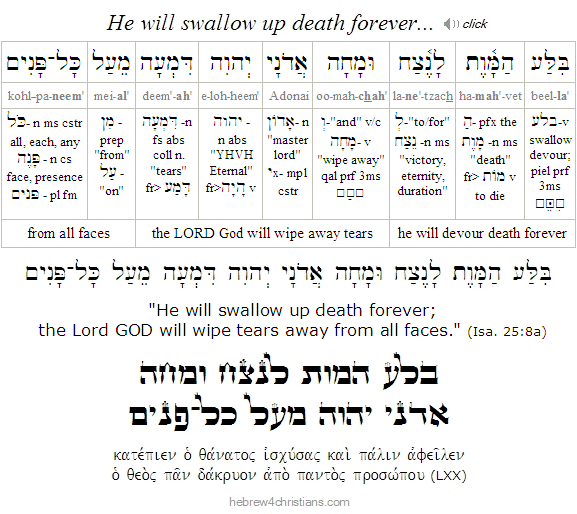 |
As I've mentioned before, the word "Zion" is mentioned over 160 times in the Scriptures. That's more than the words faith, hope, love, and countless others... And since Zion is a poetic form of the word Jerusalem, the number of occurrences swells to nearly 1,000! It is therefore not an overstatement to say that God Himself is a Zionist.... "Out of Zion, the perfection of beauty, God shines forth" (Psalm 50:2). Zion represents the rule and reign of God in the earth and is therefore synonymous with the Kingdom of God. The entire redemptive plan of God -- including the coming of the Messiah Himself and our very salvation -- is wrapped up in the concept of Zion. It is the "historiography" of God -- His philosophy of history, if you will.
In a sense, Zion is the heart of the Gospel message and the focal point of God's salvation in this world. Zion represents our eschatological future -- our home in olam haba (the world to come). Even the new heavens and earth will be called Jerusalem -- "Zion in her perfection" (Rev. 21). "This is what Adonai Tzeva'ot says: I am very jealous for Jerusalem and Zion, but I am very angry with the nations that feel secure" (Zech. 1:14-15). "For Zion's sake I will not keep silent, for Jerusalem's sake I will not remain quiet, till her righteousness shines out like the dawn, her salvation like a blazing torch" (Isa 62:1). "The builder of Jerusalem is God, the outcasts of Israel he will gather in... Praise God, O Jerusalem, laud your God, O Zion" (Psalm 147:2-12).
The outworking of humanity's history is essentially a conflict between good and evil. This "spiritual war" traces back to paradise lost and the eventual construction of Bavel in ancient Shinar, where Nimrod attempted to collectivize humanity under autocratic rule. Yeshua referred to it (among other things) as a conflict between the Kingdom of God (מַלְכוּת אֱלהִים) and the kingdom of Satan (John 8:34-6). The Apostles likewise spoke of "children of darkness" and "children of light" (Eph. 5:8; Col. 1:13, 1 Thess. 5:5, etc.). Politically speaking, St. Augustine described the cosmic conflict as one between the "City of Man" and the "City of God." World politics nearly always involves some form of violence against those who belong to God (Matt. 11:12).
The Tanakh and New Testament give the "grand narrative" of sacred history (though not necessarily chronologically understood). It is thematic and spiritual history, though it is rooted in historical fact, not myth and legend. For example, the findings of archaeology regularly reinforce historical events mentioned in the Scriptures. Our faith is based on historical, empirical, verifiable evidence.
Jewish tradition has long held that human history (olam hazeh) would endure for 6,000 years - from the time of the impartation of the neshamah (soul) to Adam in the Garden of Eden to the coming of the Messiah. There were two primary arguments for this view of history.
First, the sages argued that a "divine day" (יוֹם) equaled 1,000 years based on Psalm 90:4: "A thousand years (אֶלֶף שָׁנִים) in your sight is as a day (i.e., k'yom: כְּיוֹם)." They reasoned that since man was made in the image of God, and the Torah describes six days of creation followed by a day of divine rest, mankind (as a whole) was therefore allotted 6 x 1,000 years (i.e., 6,000) for "works" to be established in the world, followed by a 1,000 year Shabbat (Sanhedrin 97a, Rosh Hashana 31a). The ancient Seder Olam Rabbah (c. 240) catalogs historical events from the start of Creation according to the 6,000 years of history. Humanity will have his time of reign on earth for 6,000 years and then the Messiah will begin his reign in the 7th millennium, a "Sabbath" of sacred history. Later midrash goes along with this basic outline: "Six eons for going in and coming out, for war and peace. The seventh eon is entirely Shabbat and rest for life everlasting" (Pirke de Rabbi Eliezer). The Apostle Peter may also have had this outline in mind when he wrote, "With the Lord one day is as a thousand years, and a thousand years as one day" (2 Pet. 3:8; Psalm 90:4).
Second, the Jewish mystics said that since there are 6 Alephs (א) in the very first verse of the Torah, and each Aleph (אלף) represents 1,000, there must be 6,000 years of human history. The Zohar states, "The redemption of Israel will come about through the mystic force of the letter "Vav" [the sixth letter of the Aleph-bet, corresponding to the sixth Aleph] in the sixth millennium. Happy are those who will be left alive at the end of the sixth millennium to enter the Shabbat, which is the seventh millennium; for that is a day set apart for the Holy One on which to effect the union of new souls with old souls in the world" (Zohar, Vayera 119a).
So according to both the rabbis and the mystics, human history will last for 6,000 years - 1,000 years for each day of creation - followed by a 1,000 year "Shabbat" that represents the Messianic Age of global and universal peace. After the Messiah appears, there will be peace on earth, and all the promises of God given through the prophets will be fulfilled.
It is worth noting that in the discussion from the Talmud, the 6,000 years of human history are divided into three epochs of 2,000 years each. The period of "tohu" occurred from the time of the fall of Adam until the call of Abraham; the period of "Torah" occurred from Abraham until the time of the destruction of the Second Temple, and the period of the "Messiah" refers to the time when the Messiah could appear before the Kingdom is established in Zion. The time immediately preceding the appearance of the Messiah will be a time of testing in which the world will undergo various forms of tribulation, called chevlei Mashiach (חֶבְלֵי הַמָּשִׁיחַ) - the "birth pangs of the Messiah" (Sanhedrin 98a; Ketubot, Bereshit Rabbah 42:4, Matt. 24:8). Some say the birth pangs are to last for 70 years, with the last 7 years being the most intense period of tribulation -- called the "Time of Jacob's Trouble" / עֵת־צָרָה הִיא לְיַעֲקב (Jer. 30:7). The climax of the "Great Tribulation" (צָרָה גְדוֹלָה) is called the great "Day of the LORD" (יוֹם־יהוה הַגָּדוֹל) which represents God's wrath poured out upon a rebellious world system. On this fateful day, the LORD will terribly shake the entire earth (Isa. 2:19) and worldwide catastrophes will occur. "For the great day of their wrath has come, and who can stand?" (Rev. 6:17). The prophet Malachi likewise says: "'Surely the day is coming; it will burn like a furnace. All the arrogant and every evildoer will be stubble, and that day that is coming will set them on fire,' says the LORD Almighty. 'Not a root or a branch will be left to them'" (Mal. 4:1). Only after the nations of the world have been judged will the Messianic kingdom (מַלְכוּת הָאֱלהִים) be established upon the earth. The remnant of Israel will be saved and the 1000 year reign of King Messiah will then commence (Rev. 20:4).
 |
Note: Some Christian scholars such as the late Dr. Clarence Larkin have divided the days somewhat differently and have added an additional "day" based on the coming eternal state of the "Heavenly Jerusalem." Hence Larkin's depiction of the Eight Days of Creation:
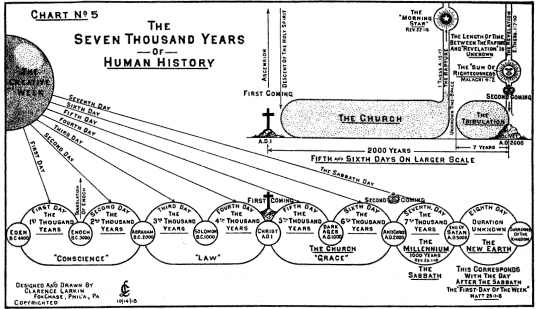 |
As for the exact timing of these events, "no one knows the day or hour." In fact, various Jewish sages have argued for "missing years" in the prophetic calendar (due to periods of exile or other factors) and therefore they say that the Day of the LORD may be delayed on account of national sins. For example, based on the gematria of the first two words of a verse from this week's parashah (i.e., וְהָיָה עֵקֶב, Deut. 7:12) Rashi explained that the 2,000 years of the Days of Messiah actually began 198 after the destruction of the Second Temple. "198 years after the destruction of the Temple the bells of the Messiah will be heard" (i.e., the days of the Messiah would begin). According to Rashi, the delay was the result of Israel's sin. (On the other hand, many ultra-Orthodox Jews believe they can "hasten" the Messiah's appearance through acts of teshuvah: "Moshiach Now!").
Since Jewish tradition states that the "days of Messiah" began after 4,000 years of history (i.e., four "days"), we can better understand the Messianic fervor among the Jews during the first century in Judea. The Essenes were awaiting the advent of the "Teacher of Righteousness" and the "Zealots" wanted to establish the Kingdom of God by force of arms. Even the common people of Israel were full of expectation that the Messiah would soon appear to redeem captive Israel. It was in this context, in the "fulness of time" (Gal. 4:4), that Yeshua began His earthly ministry as the Suffering Servant who redeemed us from the "curse of the law" (Gal. 3:13).
Messianic Hope: The King of the Jews

The Medieval rabbi and scholastic philosopher Maimonides (Rabbi Moshe ben Maimon, or "Rambam") is considered to be a mainstream voice of traditional Judaism. Maimonides' "Twelfth Principle" of the Jewish faith is his affirmation that the Messiah is coming to restore Israel to greatness beyond that known in the days of King Solomon. "I believe with complete faith in the coming of the Messiah, and though he may delay, nevertheless I wait for his coming every day." The following statement by Maimonides is probably the definitive rendering of the traditional Jewish view on the subject:
If a king will arise from the House of David who is learned in Torah and observant of the mitzvot, as prescribed by the written and oral law, as David his ancestor was, and will compel all of Israel to walk in the way of the Torah and reinforce the breaches; and fight the wars of G-d, we may, with assurance, consider him the Messiah. If he succeeds in the above, builds the Temple in its place, and gathers the dispersed of Israel, he is definitely the Messiah. ... If he did not succeed to this degree or he was killed, he surely is not the redeemer promised by the Torah" (Mishneh Torah).
The concept of the King Messiah, the "Anointed One" who would one day come to deliver his people from oppression at the beginning of an era of world peace has been the sustaining hope of the Jewish people for generations. King Messiah is the instrument by whom God's kingdom is to be established in Israel and in the world. This hope runs throughout the entire Tanakh. According to rabbinical Judaism (following Maimonides), this Messiah figure is not divine, though he certainly has divine powers and attributes. Indeed, he functions as Israel's Savior who would be empowered by God to:
- Restore the Kingdom of David (Jer. 23:5, Jer 30:9, Isa. 9:6-7, Ezek. 34:23)
- Restore the Temple in Zion (Isa. 2:2, Micah 4:1, Zech. 6:13, Ezek. 37:26-28)
- Regather the exiles (Isa. 11:12, 43:5-6, 51:11)
- Offer the New Covenant to Israel (Jer. 31:31-34)
- Usher in world peace and the knowledge of the true God (Isa. 2:4; 11:9). This will include the entire world speaking Hebrew (Zeph. 3:9).
- "Swallow up" death and disease (Isa. 25:8)
- Raise the dead to new life (Isa. 26:19)
- Spread Torah knowledge of the God of Israel, which will unite humanity as one. As it says: "God will be King over all the world -- on that day, God will be One and His Name will be One" (Zech. 14:9)
Note: In the Tanakh, the key passage on which the idea of the Messianic king who would rule in righteousness and attain universal dominion is found in Nathan's oracle to David (2 Sam. 7:11 ff). This covenant cannot have been fulfilled by Solomon, and therefore the Seed of which the oracle refers is another anointed King who would sit on the throne forever and ever. (Contrary to the heresies of "Covenant Theology" and "amillenialism," Yeshua is not presently sitting on the throne of David as Zion's King, and therefore the Jewish hope of the Messiah has not been fulfilled, just as the New Covenant terms have not yet been entirely fulfilled.)
In light the two thousand years of exile of the Jewish people during the "Days of the Messiah," various midrashim speak:
And when the flames engulfed the Temple, three young priests went up to its roof and threw the keys of the House of God to heaven. A hand reached down and took the keys. And the priest said, "How long, O LORD, how long?" And a heavenly voice answered: "Not longer than two days, my children." Then they knew that the exile of the Shekhinah and the dispersion of Israel would last two millennia, for it is written, "A thousand years in Thy sight are but as yesterday" (Psalm 90:4).
And they said before Him: "Master of the world! How can Israel endure two thousand years of suffering?" And He said to them: "Behold, I give them a ray of hope which will pierce the night of their exile. I will give them one whom they will never see but whose presence they will feel all the time who will never come but will always be at the door; whom they will seek among the lepers in the gates of Rome and in the golden canopy of the supernal Bird's Nest, but who will be found only in their heart of hearts. I will give them him who will not be but who will sustain them. I will give them the Messiah." (Raphael Patai, The Messiah Texts, 19)
Dual Aspect of the Messiah...

How could the Jewish sages have missed the advent of Messiah, especially in light of the fact that their own eschatology expected the Messiah to appear some 2,000 years after the Torah was given to Israel (i.e., the first century AD)? Even the Babylonian stargazers were able to discern the appointed time (Matt. 2:1-2).
Perhaps the sages got confused about how to interpret the Hebrew prophets. This shouldn't surprise us, for a variety of reasons, not the least of which is that the prophets were regularly misunderstood and persecuted by the sages in Jewish history. Still, the sages might have missed the coming of Yeshua because there seems to be two distinct pictures of the Messiah given in the visions of the prophets. On the one hand, Messiah is portrayed as a great king, deliverer, and savior of the Jewish people who comes in triumph "in the clouds" (Dan. 7:13), but on the other he is depicted as riding a donkey, lowly and humble (Zech. 9:9), a suffering servant, born in lowliness, despised and rejected of men. These two images of Messiah eventually lead to various oral traditions that there would be two Messiahs: Messiah ben Joseph (מָשִׁיחַ בֶּן־יוֹסֵף) and Messiah ben David (מָשִׁיחַ בֶּן־דָוִד).
Mashiach ben Yosef is identified with the Suffering Servant, of whom the patriarch Joseph prefigured (and of whom Isaiah plainly spoke in his four "Servant Songs"). In some traditions of Judaism, Mashiach ben Yosef is recognized as a forerunner and harbinger of the final deliverer, Mashiach ben David. Ben Yosef suffers for the sins of Israel and ends up getting killed in the battle against evil (Isaiah 53). Of course Christians see Yeshua as the prophesied "Man of Sorrows" and Suffering Servant who would bear the sins of many.
Mashiach ben David, on the other hand, is identified as the great military ruler and King of Israel of whom King David prefigures. This greater "son of David" will regather the exiles, set up the Temple, and deliver Israel from all her enemies. This is the Messiah that the sages of Judaism have long been expecting. Christians believe Yeshua the Messiah in His second coming will completely fulfill this description of Mashiach ben David.
In other words, since the prophecies concerning the Messiah are twofold or "dual aspect," we discern that they would be fulfilled in two distinct ways. Yeshua is both Mashiach Ben Yosef (the Suffering Servant - at His first coming) and Mashiach Ben David (the Reigning King - at His second coming). He is also the Anointed Prophet, Priest, and King as foreshadowed by other me'shichim in the Tanakh. Both traditional Jews and Christians are awaiting for the appearance of the Messiah, though Christians, of course, will welcome Yeshua back!
According to this general framework of history, we are currently living in the "days of the Messiah," just before the time of great worldwide tribulation that will lead to the prophesied acharit hayamim (אַחֲרִית הַיָּמִים), or the "End of Days." This is the age in which the spirit of the Messiah is available to all. These are "days of God's favor" that are ending soon. According to traditional Jewish sources (Pesachim 54b; Midrash Tehilim 9:2), no one knows the exact time when the Messiah will appear -- though there are some hints. The condition of the world during the end of days will be grossly evil (2 Pet. 3:3; 2 Thess. 2:3-4, 2 Tim. 3:1-5). The world will undergo various forms of tribulation, collectively called chevlei Mashiach (חֶבְלֵי הַמָּשִׁיחַ) - the "birth pangs of the Messiah" (Sanhedrin 98a; Ketubot, Bereshit Rabbah 42:4, Matt. 24:8). Some sages say the birth pangs will last 70 years, with the last 7 years as the most intense period -- the "Time of Jacob's Trouble" / עֵת־צָרָה הִיא לְיַעֲקב (Jer. 30:7). Just before the arrival of Yeshua as Mashiach ben David, a period of tribulation and distress for Israel will occur. After this "great tribulation" period, however, Yeshua will usher in Yom YHVH, the "Day of the LORD," and the long-awating sabbatical millennium, the 1000 year reign of King Messiah will commence (Rev. 20:4).
קרוב יום־יהוה הגדול קרוב ומהר מאד
קול יום יהוה מר צרח שׁם גבור
ka·rov yom-Adonai hag·ga·dol, kar·ov oo'ma·her me·od,
kol yom Adonai mar tzo·re'·ach sham gee·bor

"The great day of the LORD is near, near and hastening fast;
the sound of the day of the LORD is bitter; the mighty man cries aloud." (Zeph. 1:14)
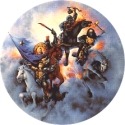
Although "Day of the LORD" is often associated with Tishah B'Av and the catastrophic destruction of the Jewish Temple, the words of the prophets were only partially fulfilled, and there awaits another Day coming when God will terribly shake the entire earth (Isa. 2:19). "For the great day of their wrath has come, and who can stand?" (Rev. 6:17; Joel 2:11). The prophet Malachi likewise says: "'Surely the day is coming; it will burn like a furnace. All the arrogant and every evildoer will be stubble, and that day that is coming will set them on fire,' says the LORD Almighty. 'Not a root or a branch will be left to them'" (Mal. 4:1). For those who are godless, the great Day of the LORD is a time of horrific judgment, but for those who belong to the LORD, it represents a day of victory and great blessing. Regarding that day the prophet Malachi said, "Then you will trample down the wicked; they will be ashes under the soles of your feet on the day when I do these things" (Mal. 4:3).
כעבור סופה ואין רשׁע
וצדיק יסוד עולם
ka·a·vohr soo·fah ve'ein ra·sha
ve·tza·deek ye·sohd o·lam

"When the storm passes, the wicked is no more,
but the righteous is an everlasting foundation."
(Prov. 10:25)
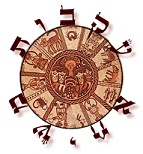
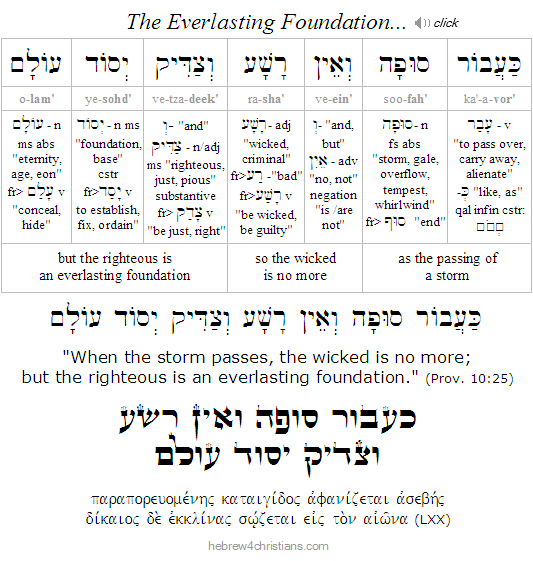 |
Ultimately the Great Tribulation period is redemptive and healing (called yissurim shel ahavah (יִסּוּרִים שֶׁל אַהֲבָה, "the agonies or pains of love"). The prophets wrote that Zion will go through labor and then give birth to children (Isa. 66:8). Thus the Vilna Gaon wrote that the geulah (national redemption) is something like rebirth of the nation of Israel. This accords with the prophetic fulfillment of Yom Kippur as the Day of Judgment and time of Israel's national conversion. In the verse from prophet Jeremiah regarding the "Time of Jacob's Trouble," it's vital to see the goal in mind - "yet out of it he is saved" (וּמִמֶּנָּה יִוָּשֵׁעַ). When Yeshua returns to Zion, all Israel will be saved (Rom. 11:26). The sages note that childbirth is a time of radical transition and struggle for the baby -- from the time of relatively peaceful existence within the womb into the harsh light of day -- and therefore a similar transition between this world and the Messianic world to come is about to take place....
וְהָיָה יהוה לְמֶלֶךְ עַל־כָּל־הָאָרֶץ
בַּיּוֹם הַהוּא יִהְיֶה יהוה אֶחָד וּשְׁמוֹ אֶחָד
ve·ha·yah Adonai le·me'·lekh al-kol-ha·a'·retz
bai·yohm ha·hoo yee·he·yeh, Adonai e·chad oo·she·mo e·chad

"Then the LORD will be king over the whole world. On that day
there shall be one LORD with one name."
(Zech. 14:9)

|










